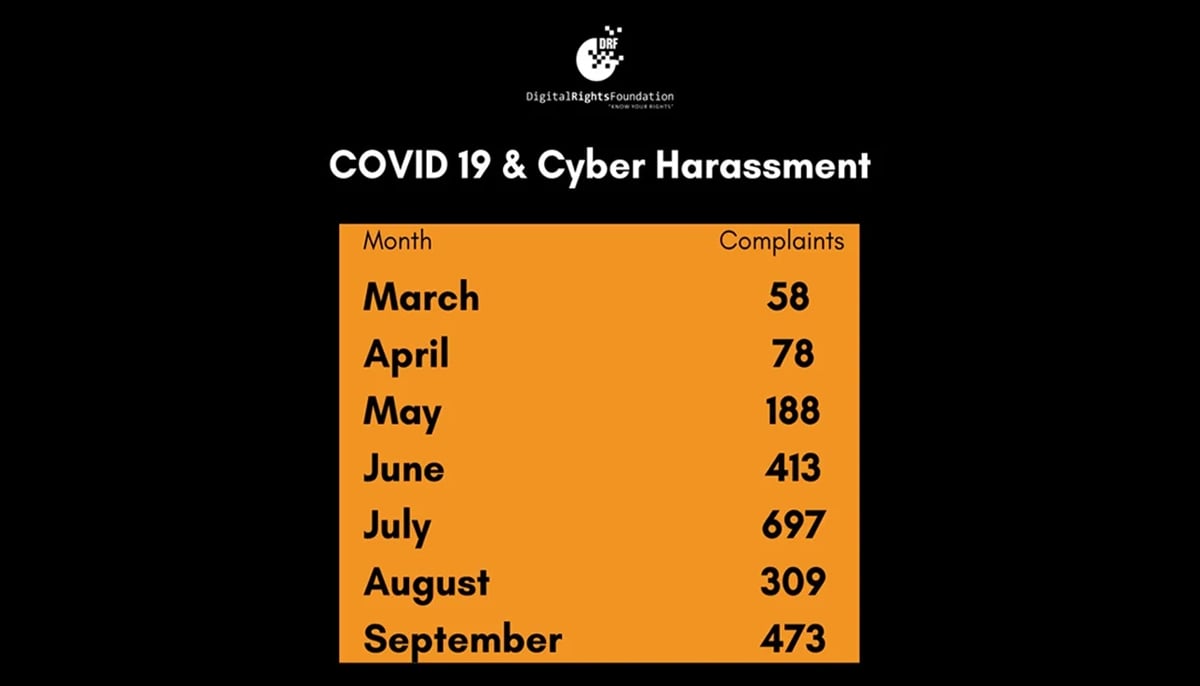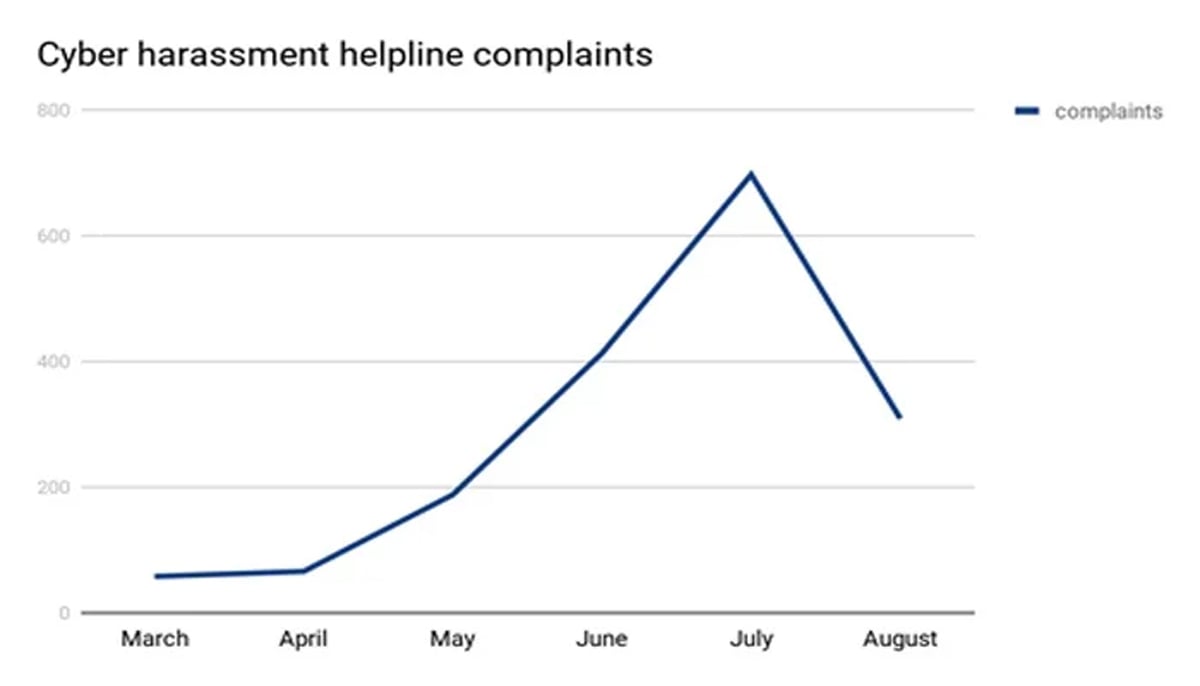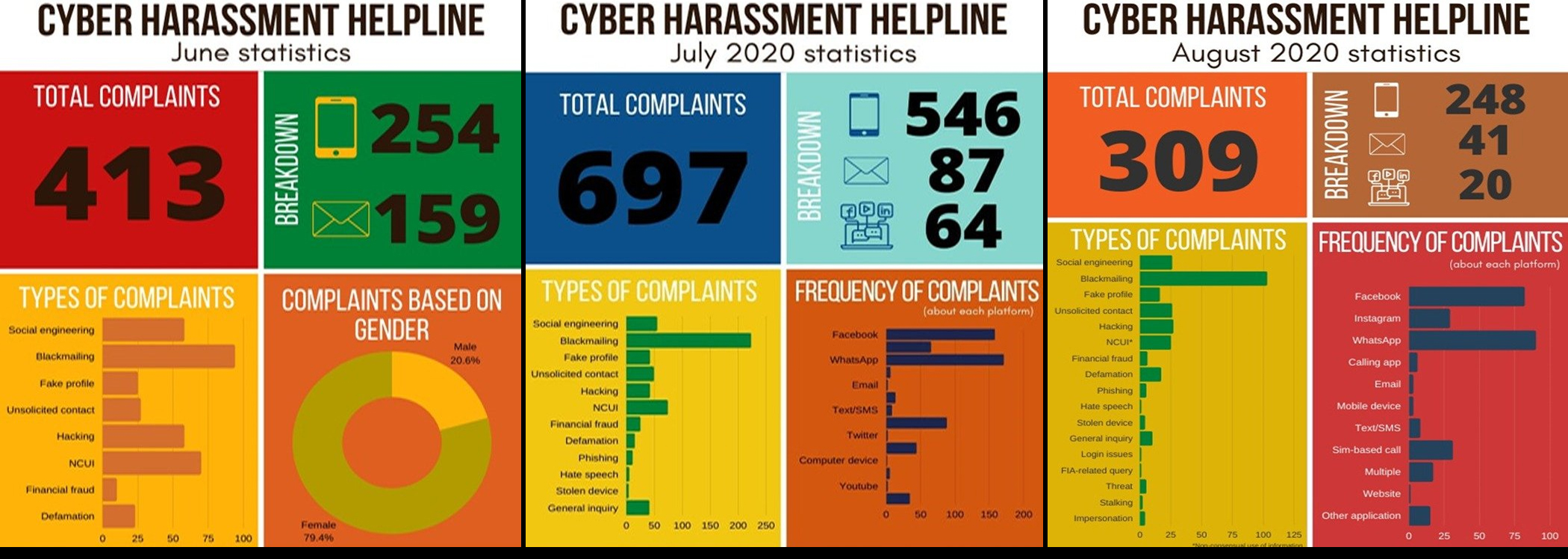Cybercrime peaked in Pakistan during the lockdown — will 2021 be any different?
According to DRF, 3,246 complaints were received from Jan till Dec 21, 2020, among which, 2,898 complaints were received from March till Dec alone

The year 2020 was not only hard for people across the globe because of the pandemic and the economic crisis engendered by it, but extended lockdowns also led to a surge in crime, especially in cyberspace.
The case was no different for Pakistan, as isolation at home, coupled with remote working arrangements, resulted in people spending more and more time on the internet.
According to digital analysts and legal experts, while technology made things easier for companies and businesses in terms of operations, it also paved the way for an increase in cybercrimes.
Data from the Federal Investigation Agency (FIA) and Pakistani research and advocacy organisation Digital Rights Foundation (DRF) shows that during the lockdown period, Pakistan witnessed a sharp rise in the number of cybercrime cases.

According to the DRF, it registered 3,246 complaints — on their helpline and via social media — from January till December, whereas FIA sources revealed that as many as 16,000 cybercrime cases were in initial stages of investigation as of December 22.
It is pertinent to mention that out of the 3,246 complaints received by the DRF over the year a whopping 2,898 complaints were registered in between March and December.
Women make majority of victims
Speaking to Geo. tv, DRF founder, Nighat Dad said that during the lockdown period, internet users grew by about 35% as people used more online spaces during the lockdown. This also led to a rise in criminal activity, mainly targeted against women.
“The pandemic has certainly played its part in the rising number of cyber harassment cases in Pakistan — a country that already suffers from ambiguity and loopholes in cyber laws, especially when it comes to digital rights,” Dad said.

The DRF’s data revealed that 68% of the complainants were women and their cases ranged from fake profiles to data theft, cyberbullying, blackmailing, etc. Corroborating that, the FIA said that 70-80% of complaints they received were filed by women.
Shedding light on the monthly reported cases, Dad observed that the DRF had registered around 697 cases at the peak in July as compared to a mere 58 cases in March — when the lockdown was in its initial phases.
The DRF further revealed that most registered complaints were related to blackmailing, followed by non-consensual use of information (NCUI), and social engineering — a term that refers to the use of deception to manipulate individuals into divulging confidential or personal information that may be used for fraudulent purposes, defamation, hacking, unsolicited contact, and financial fraud, among others.

Worryingly, out of 413 total complaints received during the month of June, about 79.4% of the complainants were from women while 20.6% were men.
Which platforms were most vulnerable?
Per the DRF, it received about 697 complaints in July 2020, of which most of the cases were related to harassment on platforms like WhatsApp, Facebook, and Twitter.
In August, when the country was stepping into the phase of smart lockdown, a slight decrease was witnessed in the number of reported cyber harassment cases. During that month, a total of 309 cases were registered with the DRF, with the majority of incidents taking place via Facebook and WhatsApp.
In terms of cases registered with the FIA, the majority of cybercrime cases took place via Facebook, followed by Instagram and WhatsApp.
What to expect in 2021?
Keeping in view the drastic surge in cyber-harassment cases during 2020 and the overall state of digital governance in the country, Dad said that it is hard to say whether this year will bring good news in terms of cybercrime, especially now when the second wave of coronavirus has pushed the country into another lockdown.
Sources in the FIA voiced similar concerns, predicting that cyber harassment cases would gradually rise with the growth of digital spaces in Pakistan.
The header is a representational image. — AFP/File





